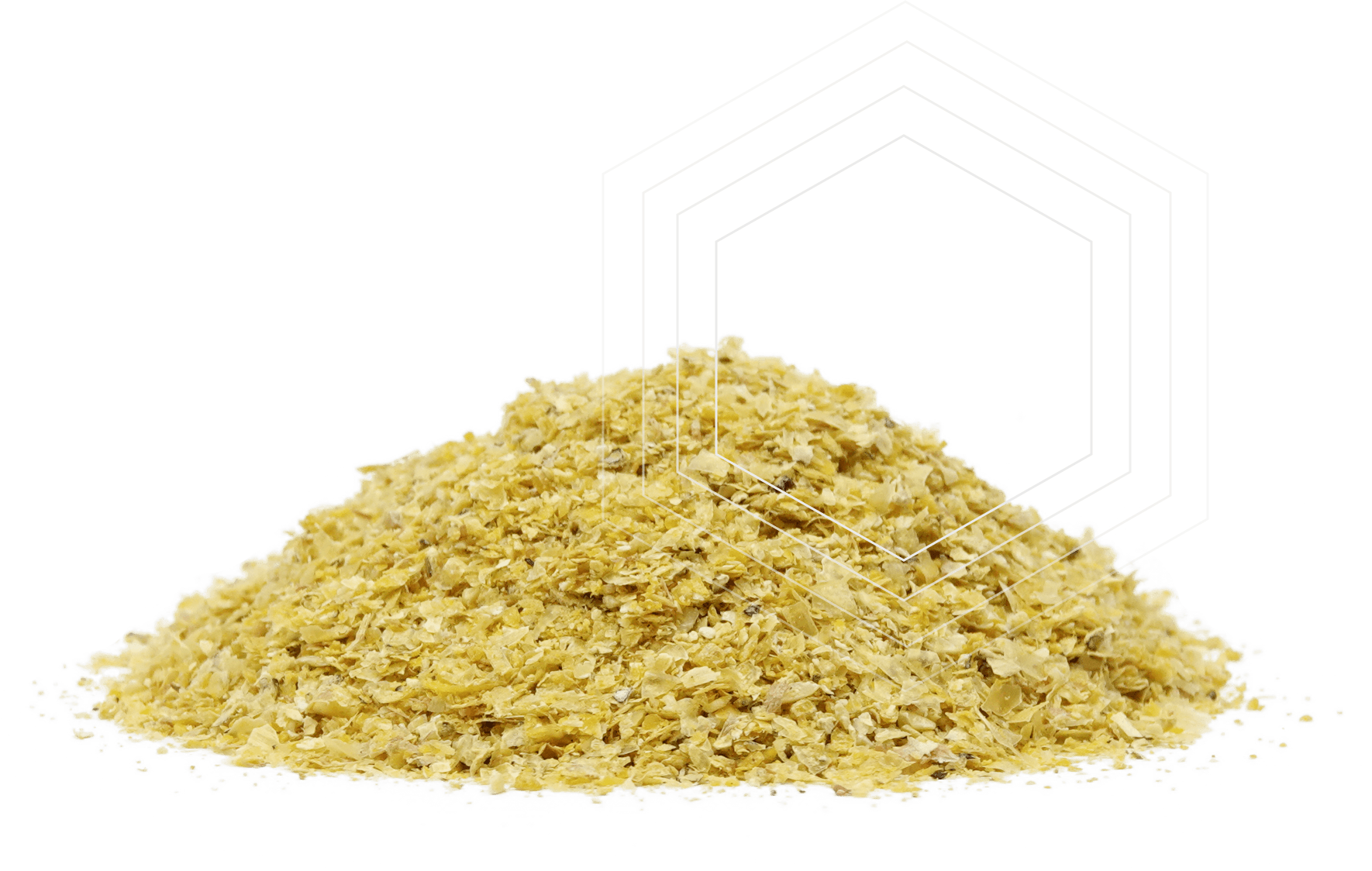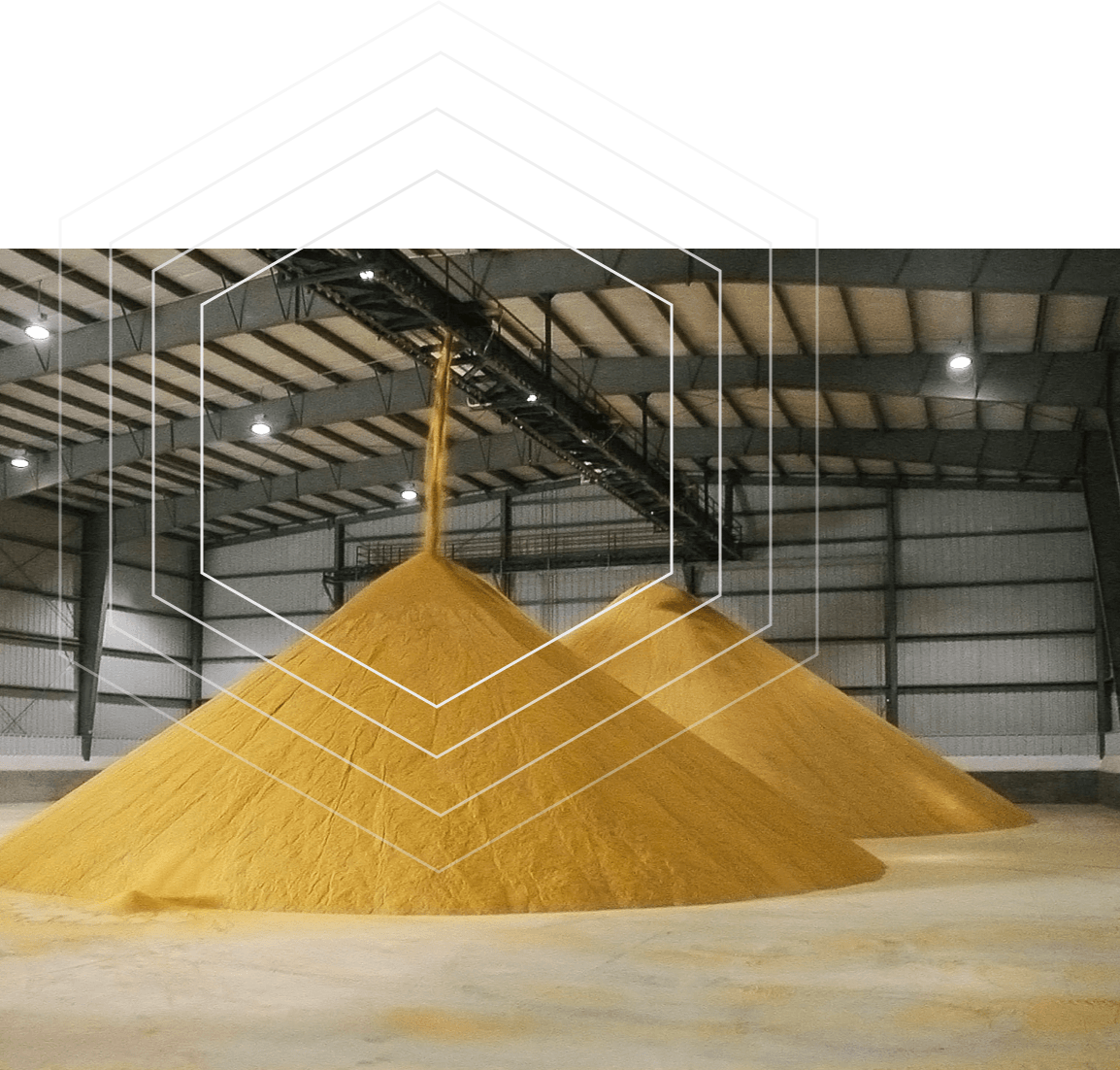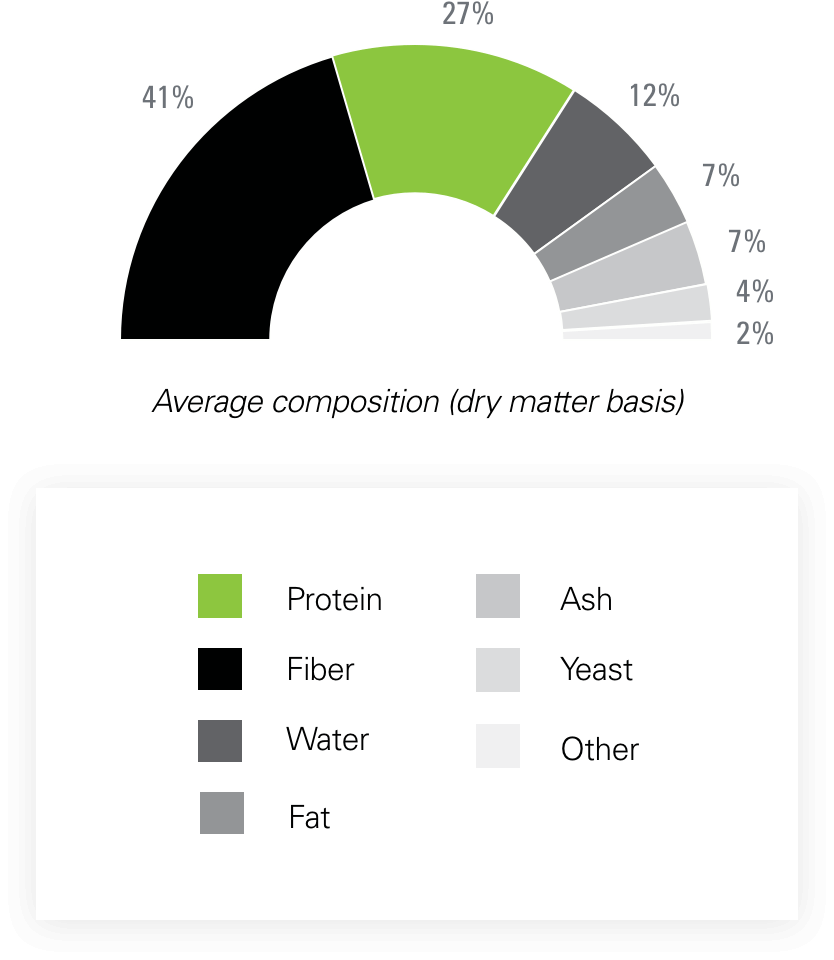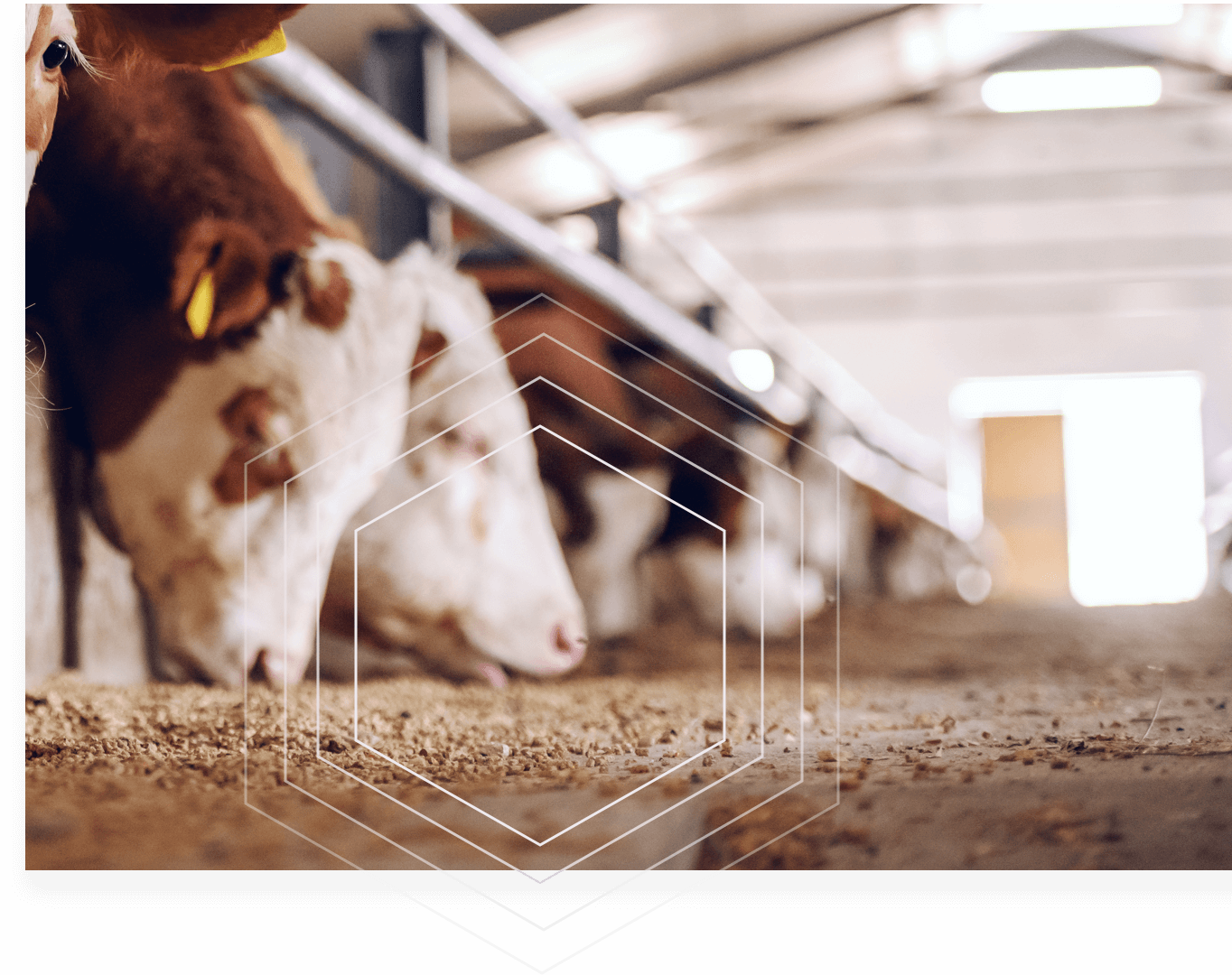with or without solubles
The ethanol production process involves grinding corn and adding hot water to form a mash. Enzymes convert the corn starch to sugar, which is released into water for distillation and recovery. After the starch is removed, the remaining grain components are concentrated to three times the values found in corn grain, resulting in distillers grains.


Varieties of distillers grains
Distillers grains can exist as wet distillers grains (WDG), partially dried modified distillers grains (MDG) and dried distillers grains (DDG). When solubles are added to the grain, these feed products may be marketed as WDGS, MDGS and DDGS.
The composition of distillers grains can vary from plant to plant. On average, WDGS are 30%-35% solids, MDGS are 45%-50% solids and DDGS are 88%-92% solids.

Uses
Distillers grains provide a good source of protein in any form. WDGS and MDGS are typically fed to beef cattle or dairy cows, while DDGS are included in the diets of cattle, dairy, swine, poultry and aquaculture. DDGS also last indefinitely and can be shipped worldwide. WDGS and MDGS pose a challenge for shipping due to their shorter shelf life, so they are usually sold locally.


